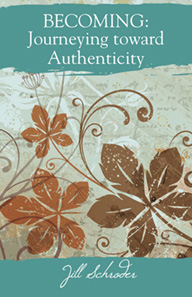 it’s how you say it!” This crunchy phrase, said to me in the heat of an exchange, was part of “another fricking ‘growth opportunity” (AGFO), and the phrase resonated deeply. (It seems like the last AGFO was not long ago. Accelerated learning curve, I guess!)
it’s how you say it!” This crunchy phrase, said to me in the heat of an exchange, was part of “another fricking ‘growth opportunity” (AGFO), and the phrase resonated deeply. (It seems like the last AGFO was not long ago. Accelerated learning curve, I guess!)
I wonder if this phrase has meaning for you… if so, I’d be pleased to hear about your experience.
 When I was growing up, a certain number of our family difficulties involved communication styles. My mom was deeply nurturing, caring, creative and she very very critical, and occasionally quite cutting in her comments. When we tried to talk about things and learn together as a family (which we actually did, and for which I’m very grateful), it frequently turned out that it was not so much what my mom said, but how she said it, that was hard to take. So the irony was not lost on me when someone said that to me, recently, when finding me to be the problematic dimension in the interaction!
When I was growing up, a certain number of our family difficulties involved communication styles. My mom was deeply nurturing, caring, creative and she very very critical, and occasionally quite cutting in her comments. When we tried to talk about things and learn together as a family (which we actually did, and for which I’m very grateful), it frequently turned out that it was not so much what my mom said, but how she said it, that was hard to take. So the irony was not lost on me when someone said that to me, recently, when finding me to be the problematic dimension in the interaction!
 In German they have a phrase about this: “Ein Apfel faellt nicht weit vom Baum.” In English, “An apple doesn’t land far from the tree,” meaning something along the lines of “Like Mother, Like Daughter.”
In German they have a phrase about this: “Ein Apfel faellt nicht weit vom Baum.” In English, “An apple doesn’t land far from the tree,” meaning something along the lines of “Like Mother, Like Daughter.”
Instead of being mortified (I have tried to very hard NOT to be like my mother in such ways), I was able to smile, and, what’s more, I didn’t get defensive. Not at this comment, nor in the face of the other challenges that came my way. Growing up, little by little, AFGO by AFGO! 🙂
I also found it deeply gratifying that I didn’t feel the need to try to persuade the other person to see my point of view. I was able to hear theirs (at the risk of being ungrammatical, I’ll keep the gender neutral, as I want this to be entirely anonymous). I noticed inside that I didn’t see it that way or share their concerns, but I could choose simply to ” leave bad enough alone.” (See the essay, The Road to Hell, in BECOMING for a significant experience in this area!)
I was able to breathe, explain my intent (which was not malicious at all, even though I had been entirely misunderstood), and then even make a couple of requests that seemed helpful for future interactions.
Oh, and finally, I realized I didn’t need the person to see me the way I saw myself, or wanted to be seen. If they thought I was off base, out-to-lunch, disrespectful… fill in the blank… and I believed it to be otherwise, that was OK, and I could leave it be. I can just be myself. Authenticity! A taste of freedom indeed!
Takeaways: (This essay is about me, but I”ll use we so you can try the takeaways on to see if they fit for you!)
• AFGOs are killer — definitely not exactly fun, but they really are great opportunities!
• We don’t have to agree to get along.
• “Leaving bad enough alone” is not easy, but often the respectful choice, and simpler too.
• It’s OK to be like our mothers 🙂 I really love my mom, and can now hold and accept both the nurturing and hurtful parts in balance, and appreciate the many ways she was awesome!
• We don’t have to be perfect to like ourselves and know we’re OK.
Jill Schroder is the author of BECOMING: Journeying Toward Authenticity. BECOMING is an invitation for self-reflection, and to mine our memorable moments for insights, meaning, and growth. Check the website for a sample chapter, or see the reviews to get a flavor for the volume. Follow me on Twitter, let’s be friends on Facebook ![]()


